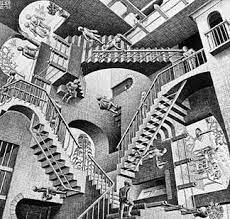- cross-posted to:
- [email protected]
- cross-posted to:
- [email protected]
A year ago, the federal government instituted a foreign buyer ban after passing the Prohibition on the Purchase of Residential Property by Non-Canadians Act in 2022. The two-year ban, which came into effect on Jan. 1, barred non-citizens, non-permanent residents and foreign controlled companies from buying up Canadian property as an investment.
But Wallace says that ban didn’t do much for her family.
“There’s all of these very luxurious buildings going in all around us that are outrageously priced,” said Wallace, after attending an open house at a promising $1.1-million condo. “The foreign buyers tax … I don’t think that’s making an iota of difference.”
Critics say the foreign buyers ban, which was aimed at making housing affordable for Canadians, had many exemptions and was more of a political manoeuvre. They say it’s clear housing remains out of reach for too many in Canada, and that the country should look to other places in the world to find strategies to foster home ownership.
Because there is no reforming capitalism, it is designed to funnel money and resources upwards.
You’re right, if course, but even if we stop short of “Ending capitalism”, there’s a more immediate problem (a direct corollary of your statement), which is that we’ve allowed housing to become an investment.
And as long as housing is an investment, there must be a housing crisis. Not “will”, must. For the value of those investments to increase, demand must outstrip supply. Solving the housing crisis means ending housing as an investment, and until someone can square that circle nothing will ever change.
but even if we stop short of “Ending capitalism”
why stop short? It’s literally the only way to end this inequality, that’s my point
we’ve allowed housing to become an investment.
No, “we” haven’t done anything, commodification of necessities is one of the cornerstones of capitalism and is enforced by and benefits capitalists, so you’re basically repeating what I’ve said - this is a feature of the system, and the system must be abolished to resolve the problem.
No housing reform will stop housing from being a commodity. They are never going to legislate anything that harms their bottom line. Building more houses will just continue to feed the rich (also, enough housing already exists in many countries). Stopping “outside” rich from buying just leaves “inside” rich to continue to do whatever the fuck they like (including making money from being middle person to “outside” rich).
So sure, you can put a band aid on a brain tumour, but don’t expect it to heal.
I get that it can be uncomfortable to confront this reality, but the time has come (and gone, tbf) to abolish the whole fucking thing.
You’re preaching to the converted.
I didn’t advocate for capitalism. I said “even if” we stop short of ending it.
Upending the entire structure of modern society is no small task. If the only way you know how to think about solving problems is in absolutes, you’ll rarely fix anything. If every medical professional insisted on having a fully stocked operating room before they so much as touched a patient, a lot of people would die in ambulances.
You have to learn to think in terms of both big and small solutions. You have to be capable of advocating for total systemic reform and incremental improvements at the same time, not least because every incremental improvement that eases the boot of capitalism off of people’s necks a tiny bit allows more people the time and financial freedom to actually become involved in the greater cause of total systemic reform.
We would stop short of ending capitalism because it is extremely entrenched and it is easier to fix it than replace it. Also because making a massive change like ‘ending capitalism’ (however that looks) opens society up to exploitation by external parties applying a kind of “shock doctrine” to ensure that whatever replaces it is to their benefit.
The primary merit of capitalism is that it theoretically does not require central planning but self-organizes into a functional system.
However, fundamentalists like Milton Friedman and Alan Greenspan believe (or at least espoused the idea) that, without central planning, these systems self-organize into some kind of optimal state. That’s the Ayn Randian wet dream, but we can clearly see that it is far from the truth, at least from the standpoint of societal and environmental well-being. (E. Ron Muskard and Jeff Bozo might disagree.)
One of the things communism and laissez-faire capitalism have in common is that neither properly account for human greed.
Adam Smith believed that people know what they need better than any central planner, and I agree with that. The role of the central planner is to ensure that excessive greed, short sighted and anticompetitive behaviour does not hinder the self-organizing aspects of capitalism. However the various central planners (read: governments) in any globalist, neoliberal country, pay lip service to this role, at best. Because of that reform will be difficult to achieve since government considers corporations to be constituents and are thus beholden to them.
I don’t know if it’s possible to ‘end inequality’ but we do need to set limits on how unequal things can get. Nobody should be so poor that they are miserable and nobody should be so wealthy that they can leverage their wealth to generate more wealth without providing a sustainable, long-term net benefit to society. A key point is that the market would no longer decide what is a benefit to society, since it clearly isn’t equipped to do that. Another key point is that unnecessary power hierarchies do more harm than good and governments shouldn’t be shy about dismantling them, including within their own structures.
I think an anarcho-syndicalist society with minimal power structures to maintain rule of order would be just fine, but I don’t see a clear path to get there without a major change of public perception. Sadly time is not on our side.
Anyway, those are my somewhat disjointed thoughts on the subject. You may not agree on all points but I think we can agree that the economic theories that have shaped our society will be our downfall if left unchallenged.
The answer, of course, is that the “foreign buyer” thing was a scapegoat and was never the real problem (or at least, far from the most important one).
The real problem is ZONING.
When it’s LITERALLY ILLEGAL to build (a) enough housing where people want it (because neighborhoods close to city centers are zoned single-family only) and (b) inexpensive housing (because of large lot sizes and minimum parking requirements inflating mandatory costs), of course homes aren’t going to be affordable!
By exclussively building single family homes, for the most part you are also forcing someone to require a car. Sure its possible to live in some areas car free, and it is possible to live in suburbia car free, but for the vast majority of Canadian suburbs living car free makes your life significantly harder.
We really need to rethink how we build and zone our cities, spend more space on people and less space on cars. Abolish parking minimums and let the business owner decide their parking requirements. Limit sprawling subdivisions and strip malls and enforce higher densities.
Build fifteen minute cities, in short. I live in one, for all practical purposes, and it’s GRAND!
That term has been ruined by conspiracy theorists who can’t fathom a walkable city without cameras tracking your every movment, government forcing you to never leave your neighbourhood and other ridiculous exaggerations of what is just an urban planning concept.
“Congestion pricing? You mean a freedom tax.” “They want you to get rid of your car so they can control you” “You can’t visit anyone out of your 15 minute district”
Oh well. I can’t cater to the stupid and the insane. I’ll live where I don’t need a car to get basic amenities of life and use the money I save to live grandly. They can spend the money, time, and health on living with unnecessary vehicles until they die out.
What’s the number between foreign buyers vs multiple homes owners? We need tighter rules on both if anything’s going to make a dent on housing affordability.
What’s the number between foreign buyers
There’s a video by Economics Explained that reviews this law change from an economic perspective. At around the 10 minute mark, he shows a chart of the country that breaks down provincial reporting of foreign property purchases. Not every province tracks this stat, but for those that do, foreign buyers are responsible for around 3%-6% of all purchases. Even then, this law didn’t ban all of those purchases. There were so many exceptions that most foreign buyers could still buy all the property they wanted. I’m not sure that anyone tracks if a property buyer already owns property.
The video suggests, as does the OP article, that this was likely a political stunt to make it seem like the government is doing something while not actually doing anything. Actually lowering house prices comes with economic negatives. For people who already own houses, their house could then be worth less than their mortgage, a decline in GDP figures which many see as an indication of a recession, and a decline in stock market value since so much of it is now tied to real estate assets. The government wants to avoid hurting the economy while appeasing people who see houses as something to live in and not as a financial asset.
Actually lowering house prices comes with economic negatives.
That depends strongly on how you go about doing it. If you try to do it by destroying jobs and turning your city into Detroit or something, sure, that’s bad. But if you do it the sane way, by fixing the zoning code to allow more density and require less (expensive and space-inefficient) parking, then you’re making the city a more desirable place to live at the same time and it becomes a virtuous cycle.
Plus building density encourages transit, which is more economically and energy effecient than everyone driving. Even if everyone is in an EV, electrified transit is still more effecient.
I would phrase that even more strongly: trying to design cities to accommodate cars is utterly disastrous, and would still be so even if they ran on pixie dust and emitted nothing but unicorn farts.
The biggest problem isn’t even pollution or energy efficiency; it’s just the sheer amount of space cars waste (in terms of both wide streets and parking lots)! Allowing the presence of cars to destroy walkability – and make no mistake: accommodating cars and having any other transportation mode (walking, biking, transit) be viable are mutually-exclusive – has all sorts of knock-on negative effects, up to and including increasing obesity (because walkable cities help keep people fit) and harming mental health (because Euclidean zoning often makes it illegal to build “Third Places” near housing).
Its almost as if most roadway design theory is based on stuff they made up in the 60s off no real data other than wanting to sell The American Dream
But no matter how you do it the metrics they mentioned will still go down. Property values will go down because reducing property values and making housing affordable is pretty much equivalent.
The 40-60 year old houses that have been neglected for years sitting on half an acre in an older part of my hometown really shouldn’t be worth 750k-900k anyway.
Thanks! I think I remember reading something about this “ban” that it really isn’t a ban, just extra hurdles that can be circumvented.
Critics say the foreign buyers ban, which was aimed at making housing affordable for Canadians, had many exemptions and was more of a political manoeuvre.
That’s disgusting. This is for placating/misleading voters and keeping the status quo as it is. If a ban is not a ban it shouldn’t be called a ban
For real. “Why didn’t a measure that didn’t actually do what it says it would work?!”
It is working as intended though: Make voters believe that an important issue that affects them is being addressed, and don’t actually do anything that would negatively affect the plutocrats or address wealth inequality. The first step was to create a boogey-man out of ‘foreign buyers’ to centre the housing affordability debate around a PR-friendly issue.
What I’m starting to realize though - through seeing this more and more - is that doublespeak phrases or talking points, like “ban”, play a pretty critical role in keeping us misinformed and easily swayed. The term “ban”, although factually incorrect, fits the government’s agenda of self-promotion and fits CBC’s agenda of reporting uncritically of the status quo. We can only begin to understand what’s happening after realizing that “ban” doesn’t actually mean what “ban” typically does in English.
Sorry, I’m kind of going off on a rant. M/Disinformation and the current/future state of democracy concern me a lot.
One thing I’m coming to the realization of, after learning that the recent online news bill has several shortcomings that the government failed to mention and will exclude smaller news outlets, is that financially supporting the dying breed of high-quality, critical journalism is a democratic imperative
As with most canadian laws, the online news act was to protect big corporate interests, not the media.
I moved from the US in the summer and purchased a house in BC. My wife (who is still American) was no allowed to be on the deed, otherwise we would have to pay a giant tax bill. So it at least works against the little guy, if not against the corporate buyers or people rich enough to pay workarounds.
It’s because there are numerous factors at play. Low interest rates combined with investors (some of whom are foreign), Airbnb hotels, along with record high immigration and minimal supply expansion all contribute to the problem. All play an aggravating role, but that means that there isn’t a single silver bullet to solve the problem.
It’s frustrating to me when people argue about whether it’s a supply side issue or a demand side issue - it’s both! There aren’t enough homes for people AND it didn’t help that people had to compete with investors with below-inflation interest rates.
Ley says Singapore controls “investor play” in the housing market “so there is opportunity for local buyers to be successful.”
So more aggressive taxes?
In a word, yes.
When a foreign ownership tax was previously used in Canada, the rate wasn’t 15%. It was fifty percent
Wow that’s heavy.
2 years? Pretty sure rich people can just wait it out.
Well, you will have to make A LOT of mistakes before you understand that the only way to fix this problem is by increasing the supply until it meets the demand. Having demand is a very good thing for the economy. You need to break the monopolies in the construction sector and open it for more players.
It’s not at all clear thast there’s a real supply issue. When houses and apartments are being held by speculators, or used as AirBnBs, instead of as homes, then it seems like an issue of misappropriation, not supply.
Canada has the lowest houses per capita of the G7 nations. That leads me to believe supply is an issue.
Supply and demand is like the most basic economic system. We certainly should not need to make a lot of mistakes before realizing building more houses increases the housing supply.
Trudeau : we must double down.
Double down on policies that sound good in theory but don’t work in practice. All that matters is the headlines and corporate profit.
Double down on policies that sound good in theory but don’t work in practice. All that matters is the headlines and corporate profit.
Well, yes. That’s what the Liberal party does. Make progressive-sounding noises while funnelling money upwards.
(to be fair, the CPC does this to, only they vice-signal instead of virtue-signal)
Real estate agents make a % of the sale of the property. The ones selling the homes have a vested interest in the houses going for as much as possible.
Want to stop the scam? Fix the problem with the people selling properties.
I refused to use a realtor when buying a home in Northern BC. So I just found a seller who also didn’t want one either and was selling something that met my requirements. It was a super easy transaction with literally no problems at all and saved me many thousands of dollars.
Everyone told me this would be impossible. It wasn’t. It was extremely easy.
This is the best summary I could come up with:
Though Housing Minister Sean Fraser’s office declined an interview request, his spokesperson said the government had worked with cities across the country to help “over 250,000 new homes get built over the next decade.”
The CMHC said Ottawa is “working to ensure every Canadian … has an affordable place to call home,” citing moves to forgive GST from newly constructed rental units, $20-billion in apartment financing and other initiatives.
Earlier in November, Conservative Leader Pierre Poilievre said that rather than helping to make housing affordable, the government’s policies have instead “made the problem worse.”
Thomas Davidoff, an associate professor at the University of British Columbia’s Sauder School of Business, and UBC PhD student Keling Zheng studied the effect of foreign buyer taxes in B.C.
According to Davidoff, high-end home prices did plummet initially after the foreign buyers ban — but he says the real driver was soaring interest rates that triggered an economic slowdown.
The retired UBC Urban Geography professor says Canada could learn from success stories like Singapore, which boasted one of the highest home ownership rates in the world in 2022 at 89 per cent.
The original article contains 1,198 words, the summary contains 178 words. Saved 85%. I’m a bot and I’m open source!
There are zoning issues and missing middle issues and so on, but there is one thing that everyone keeps saying won’t work while saying all of the stuff they’ve been doing will work (and doesn’t).
Fucking cap the sale and/or resale price of houses. Don’t expect the capitalists to make life easier on others at the expense of their bottom line, STOP them from doing it outright.
When they complain, build housing as the government which you can rent control without lobbyists yelling at you.
Developers may go away, but I doubt we’ll lose them all, or even most of them.










